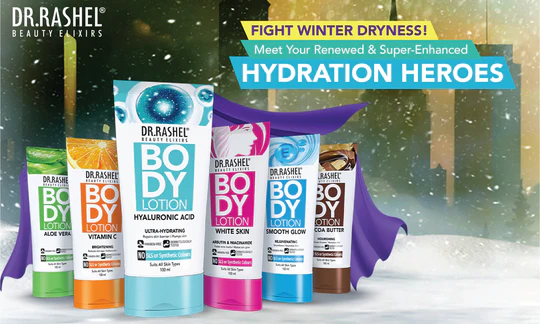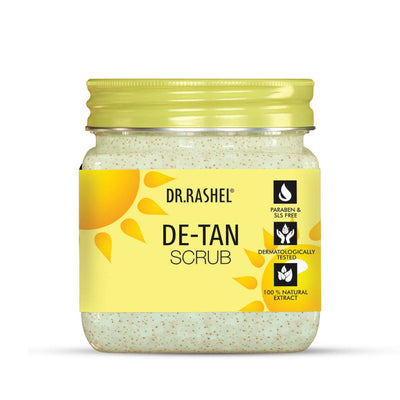
Table Of Content
- Winter Troubles for Oily Skin
- Steps for Winter Skincare Routine for Oily Skin
- Tips for Oily Skin in Winter
- Conclusion
- FAQ’s
As the winter months approach, many individuals start to rethink their skincare workouts. Winter skincare routines for oily skin, mainly, may additionally enjoy unique demanding situations in the course of this time. While oily skin could enjoy the cooler temperatures, wintry weather brings a one-of-a-kind set of skincare concerns. The dry air, indoor heating, and temperature fluctuations can go away oily the skin feeling congested, dehydrated, or angry. Understanding how winter influences oily skin and adopting a tailored skincare routine for oily skin in winter can make all the difference in keeping a healthy, balanced complexion all through the chillier months.
Winter Troubles for Oily Skin
When you think of oily skin, you may think it is shiny and greasy, in particular, all through warmer months. However, winter brings an exceptional set of worries that can impact those with oily skin. While the cooler weather may look like a relief, it could disrupt the skin’s herbal oil manufacturing and barrier characteristics, resulting in several common skin troubles.
1. Dehydration Despite Oiliness
One of the largest misconceptions about oily skin is that it doesn’t need hydration. In winter, the air is drier, and indoor heating structures often strip moisture from the skin. This creates a paradox wherein oily skin wishes for hydration but produces extra oil to atone for the moisture shortage, leading to an imbalanced, greasy complexion. Over-moisturizing or using the wrong products can clog pores and make skin appear more oily, making it appear even shinier. Use the best moisturizer for oily skin in winter with ingredients like vitamin C and hyaluronic acid to combat this.
2. Increased Oil Production
During wintry weather, the skin can enjoy improved oil production due to environmental stressors. The skin’s outer layer becomes dehydrated from the dearth of humidity, inflicting the sebaceous glands to overproduce oil as a protection mechanism. This can clog pores and lead to breakouts and blackheads. To prevent this opt for a good moisturizer for oily skin in winter or a face cream for oily skin in winter.
3. Breakouts and Acne
Cold weather can cause skin irritation, making it more at risk of acne flare-ups. Although oil manufacturing will increase, the skin may also emerge as angry by way of harsh weather conditions or harsh skincare products. This, mixed with overactive sebaceous glands, can cause breakouts, mainly around the chin, jawline, and brow. Use a winter face cream for oily skin or face cream for winter for oily skin to soothe irritation.
4. Tightness and Flakiness
Despite the oiliness, the skin may additionally feel tight or even flaky for the duration of iciness. This is a sign that the skin is dehydrated and may be struggling to hold its moisture stability. The skin can also produce extra oil to catch up on the dryness, resulting in a shiny look but with underlying flakiness or rough patches. A facial kit for oily skin in winter can be helpful here.
Understanding those wintry weather-specific troubles is prime to crafting a skincare routine that addresses your oily skin’s particular wishes during the less warm months.
Steps for Winter Skincare Routine for Oily Skin
To maintain a wholesome, glowing complexion in winter, it’s vital to observe a balanced skincare routine that prevents both oiliness and dehydration. Here are the steps to observe:
1. Cleanse Gently with a Hydrating Cleanser
Start your day with a gentle cleanser with hydrating ingredients. A gentle cleanser removes dirt, impurities and excess oil. Foaming cleansers for oily skin deeply cleanses and ensures the skin remains clean.
2. Exfoliate to Unclog Pores
Exfoliating is important to remove dead skin cells. Aim to exfoliate two to 3 times a week with a gentle scrub or exfoliant containing salicylic acid, which penetrates deep into the pores to clear them out without tensing the skin. Use a gentle apricot scrub for the face and body so that it doesn’t irritate the skin.
Recommended Products: Apricot scrub benefits include smooth, radiant skin when used regularly.
3. Incorporate a Lightweight Serum for Targeted Treatment
A serum is a fantastic way to offer your skin-focused active substances that deal with unique issues like oil management, zits, and hydration. Choose a lightweight serum that is formulated to hydrate the skin without making it greasy.
4. Use a Lightweight Moisturizer
Even oily the skin desires moisture, however the cold air quickly dehydrates the skin. Opt for a lightweight, non-comedogenic (doesn’t clog pores) moisturizer for oily skin in winter that gives hydration without adding extra grease. Water based moisturizers are perfect to provide hydration without feeling heavy or greasy.
5. Apply Sunscreen Daily
It’s easy to forget about sunscreen during the winter months, however it’s important to protect your skin from harmful UV rays, even in colder weather. Choose an oil control and non-comedogenic sunscreen to shield your skin
Tips for Oily Skin in Winter
In addition to following a tailored skincare habitual, right here are a few additional hints to assist manage oily skin during wintry weather:
- Avoid Hot Showers: While it’s tempting to take warm showers all through the cold months, they could strip your skin of their natural oils and worsen dehydration. Opt for lukewarm water rather.
- Use a Humidifier: Indoor heating can dry out the air, causing your skin to become dehydrated. A humidifier adds moisture to the air, that can help save you this.
- Don’t Skip SPF: Even in winter, the solar’s harmful UV rays can damage your skin, so constantly wear sunscreen before heading outside.
- Stay Hydrated: Use vitamin C products for dry skin or opt for coconut skincare benefits for nourishment.
- Follow a consistent routine: Follow skincare daily and use facial kit for women and men for a more targeted treatment.
Conclusion
Maintaining a winter skincare routine for oily and shiny skin calls for balancing hydration with oil management. By knowing how winter influences your skin and following the proper steps, you may prevent breakouts, keep your skin hydrated, and maintain that healthy glow all season long. Remember to cleanse gently, tone, exfoliate, moisturize, and treat your skin with products that match your oily skin’s wishes. With the right routine and elements, your skin will thrive for the duration of the less warm months.
Embrace the season with self-assurance, knowing that your skincare routine is your pleasant best friend in fighting winter skin woes!
FAQ’s
What is the best face cream for oily skin in Winter?
Ans: Hyaluronic acid, vitamin C, and aloe vera are some of the best oily skin creams in winter.
What is best for oily skin in winter?
Ans: NIacinamide, tea tree, and aloe vera are best for oily skin in winter.
Is vitamin C good for oily skin in winter?
Ans: Yes, vitamin C reduces sebum production making it good for oily skin in winter.
Is face serum good for oily skin?
Ans: Yes, face serums are good for oily skin as they help to nourish the skin and balance out the sebum production.
Do I need hyaluronic acid if I have oily skin?
Ans: Yes, hyaluronic acid helps to reduce sebum production without dehydrating the skin, making it a must-have for oily skin.







